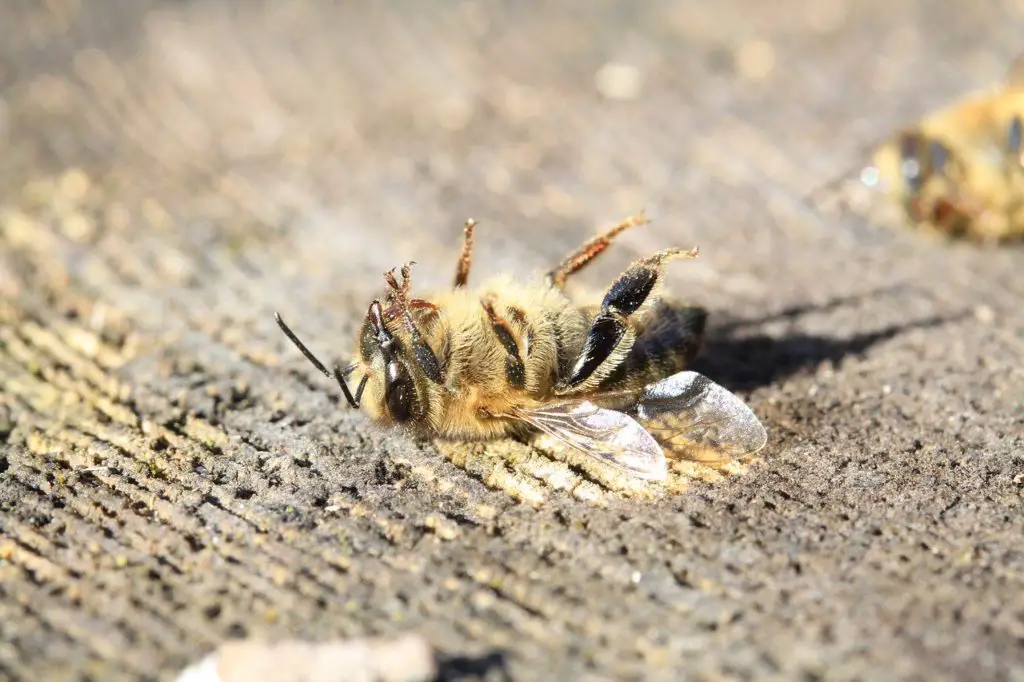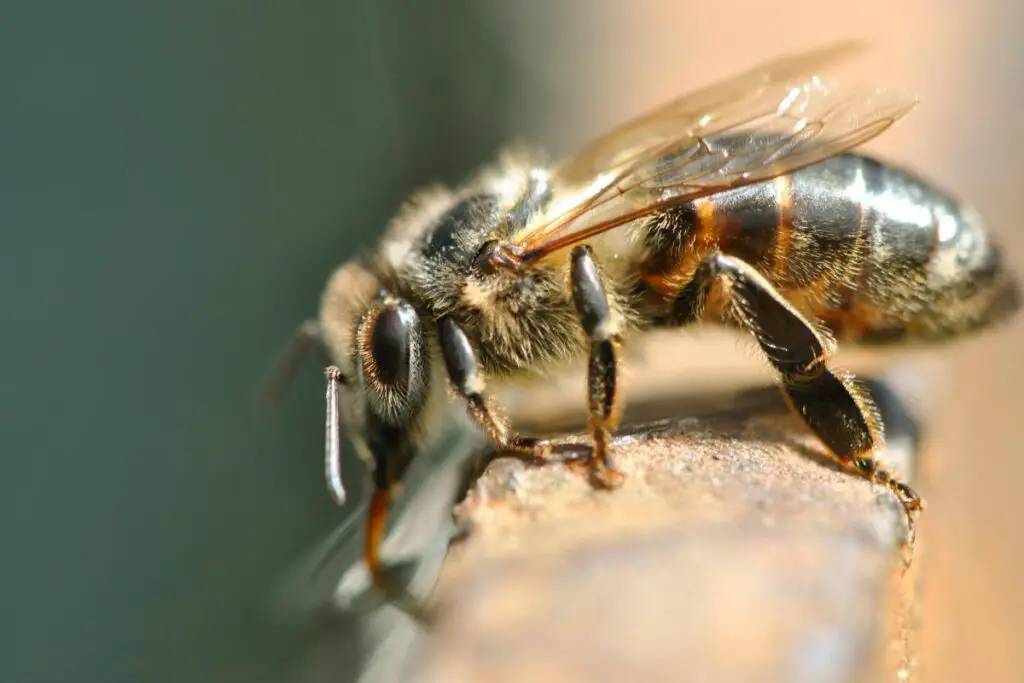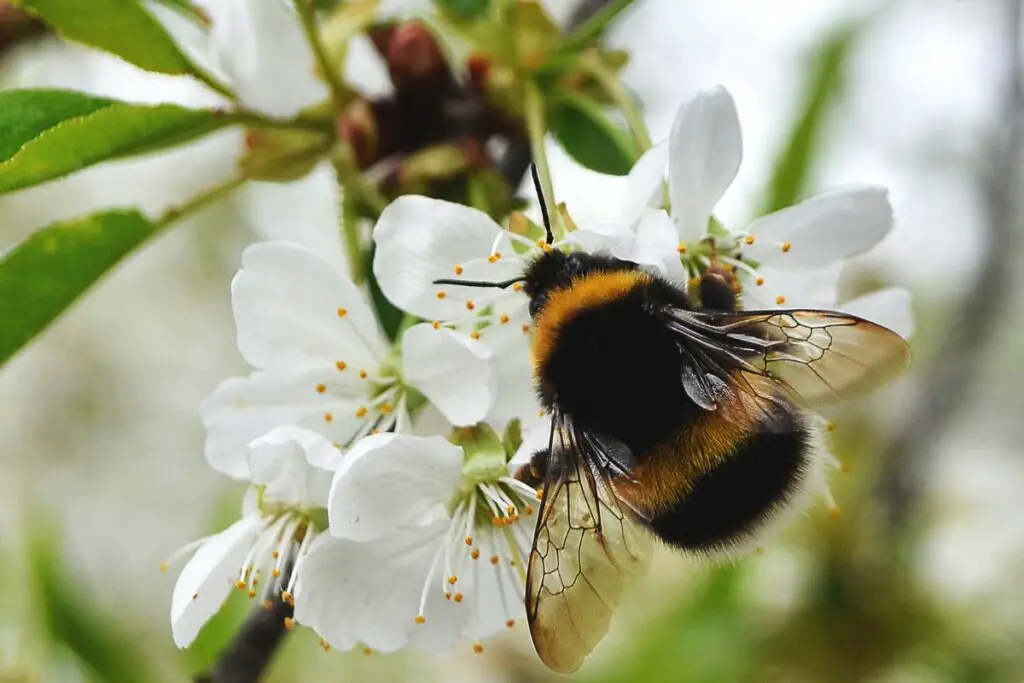Last updated on January 5th, 2024 at 03:29 pm
Why do bees die if they sting you?
A simple question with a not-so-simple answer.
To begin with, not all species of bees sting; it’s only honeybees, bumblebees and carpenter bees that use a venomous stinger when defending themselves.
Let’s take a closer look at the common misconception that all bees die after stinging and the real story behind stinging bees.
Do All Bees After They Sting?
The honeybee is the only type of bee to sacrifice itself when its barbed stinger penetrates human skin.
Bumblebees and carpenter bees will both sting to defend themselves or their nests, but they rarely die for their efforts.
Interestingly, only female bees are equipped with the sting required to drive away potential predators and perceived threats.
*Interesting fact – While the queen honeybee can sting, the defence of the hive and colony is left up to the worker bees; in the rare cases when queens have stung humans, they’ve reported considerably less painful stings when compared to stings from workers.
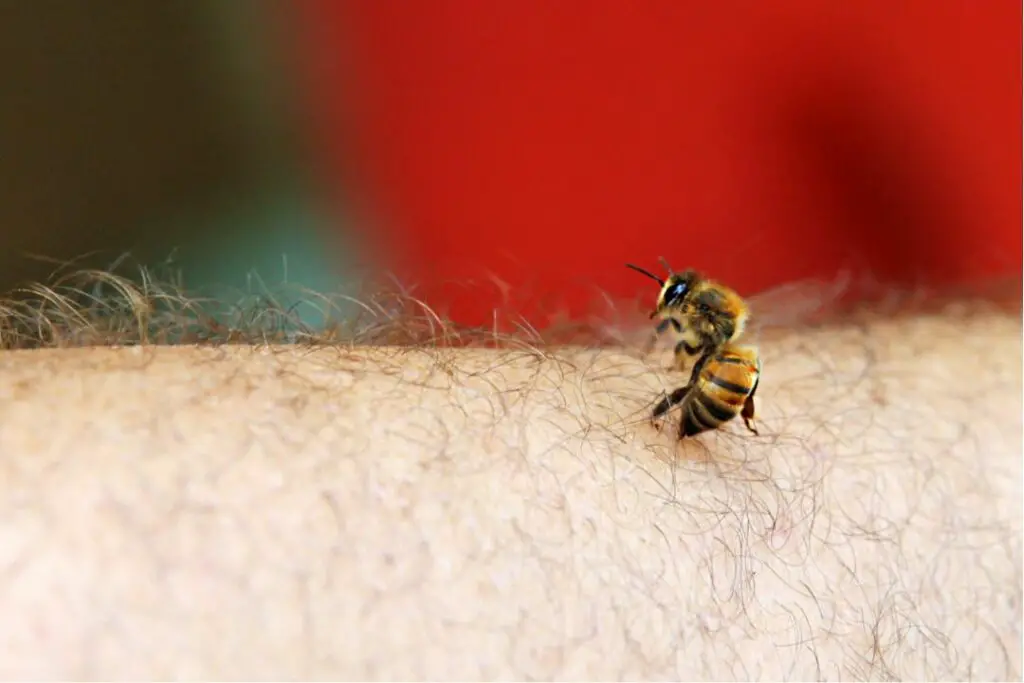
why do bees die after stinging?
Unlike the stingers of other bees and wasps, the honey bee’s sting comes equipped with two barbed lances that they inject into the unfortunate subject to deliver their venomous payload.
These barbed shafts can become stuck and detach from the bee’s abdomen, leading to death.
This carefully evolved weapon (scientifically known as a modified ovipositor apparatus) is perfect for fending off any potential insect intruders or honey thieves from the nest.
This works so well because insects don’t have the same elastic skin as humans and most mammals allowing the attacking bee to dislodge its stinger.
The main issue arises when a bee stings either a human or animal with stretchy elastic skin; rather than dislodging; the skin will stretch and create resistance as the bee tries to pull away from the sting site.
During this escape, the bee will tear away the part of its abdomen containing its sting chamber and venom sac, causing catastrophic and normally fatal injuries.
Does a bee die after it stings you?
It’s worth noting that some honeybees can successfully remove themselves after a sting by rotating their abdomens to effectively ‘unscrew’ their sting from the sting site.
They normally need a few minutes to complete this, so you’ll need to deal with the pain briefly as they work themselves free.
Looking for the perfect bee gift? Don’t miss our handy bee revival kit to help save tired, thirsty bees on the go! Get it over at Amazon below.
- 🐝🐝🐝 Wildlife Gifts To Help Bees & Pollinators - Your Bee Revival Keyring contains a special...
- 🎁🎁🎁 Bee Gifts For Women - Give the gift of giving with our bee accessories from Revive a...
- 🌱🌱🌱 Plantable Seed Paper Packaging/Seed Gifts - What makes the perfect eco gift? We think...
- 🌍🌎🌏 Planet Friendly Gadget Keyring - A great gift for a friend or loved one who cares about...
- 🐾🐾🐾 Supports Rewilding Britain - A percentage of every sale will be donated to Rewilding...
How fast does A bee die after it stings you?
This will vary from bee to bee, but in most cases, it will be no more than a few minutes after they’ve stung you.
Because so many of the bee’s internal organs are left behind, it has very little to no possibility of survival.
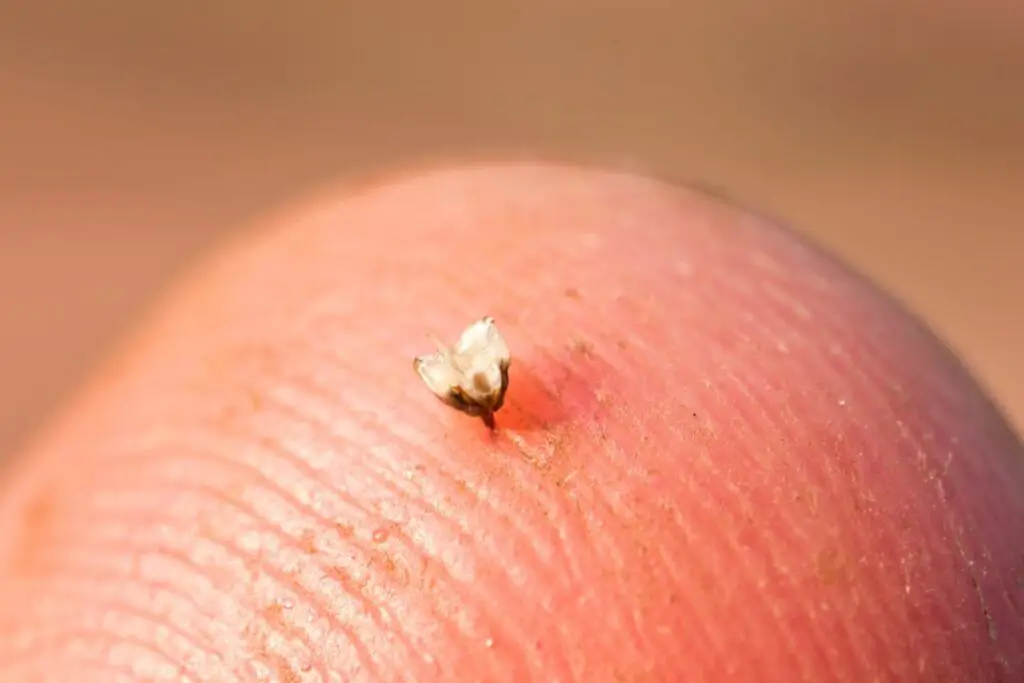
The defence mechanism of stinging
There is an advantage to the honey bee giving its life for the defence of the hive.
Even after the Honeybee has been removed from the sting site, the stinger itself will continue to discharge toxins directly from the venom sac.
This ensures the worker bee causes as much discomfort as possible for her troubles.
As the honey bee stings, it will also begin the release of attack pheromones, alerting other bees in the area to any potential insects or large animals that could be a risk.
This will initiate all of the bees that can pick up on the pheromones to attack and sting anything perceived as a threat in the area.
What you need to know if you get stung by a honey bee
It hurts! No, I’m kidding. There’s more than that, but that will be the key message here.
Sadly, some humans are allergic to bee stings and risk falling into anaphylactic shock if they’re stung.
With honeybees playing an important role in pollination and the animal kingdom, we implore you to avoid killing a bee after it’s stung you.
With that out of the way, let’s quickly look at some simple steps to minimise the pain and swelling from a bee’s sting.
Looking for other ways to help bees? Our handy Bee Revival Kit gives you all the tools you need to help a tired, thirsty bee!
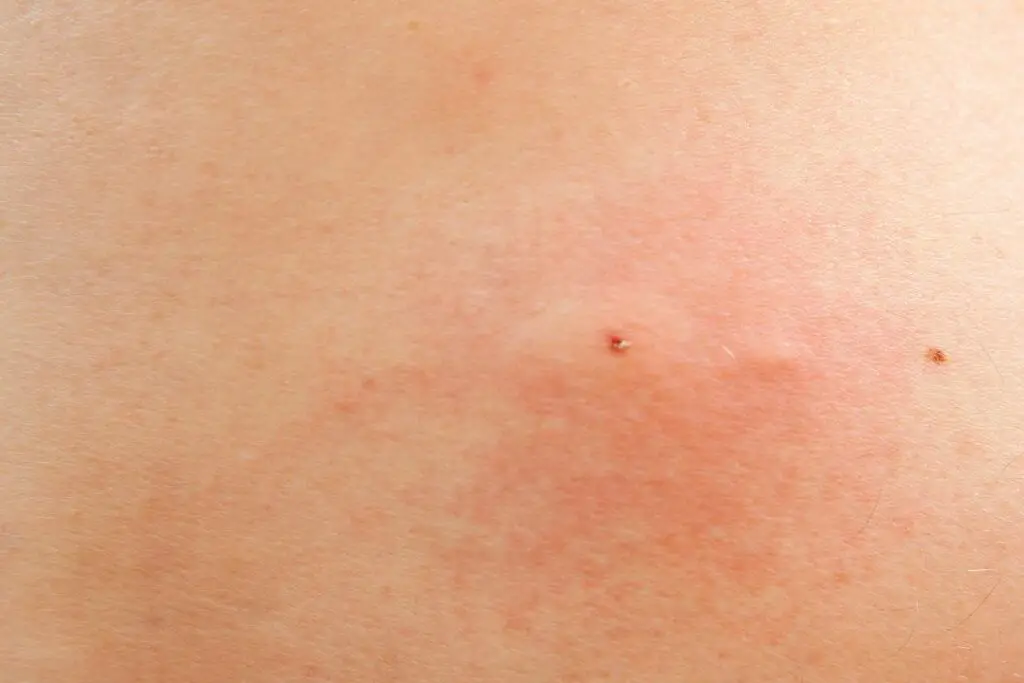
How to reduce pain and swelling after a bee stings you
First of all, you’ll need to remove the sting; you can use a sharp edge like your fingernail or a debit card to scrape along the skin and dislodge the barbed ratchet mechanism that gets left embedded.
Be careful not to squeeze the viscera attached to the sting as this could inject more venom into the sting sight and increase your pain levels.
Now that the sting is gone, here are some simple home remedies beekeepers and enthusiasts swear by to treat honeybee stings.
- Honey rub – Gently rub some honey onto the affected area and cover it with a loose dressing. Redness and swelling should start to reduce quickly afterwards.
- Toothpaste – Add some toothpaste to the sting site; toothpaste’s alkaline properties help neutralise the acid contained within the bee’s sting.
If your symptoms persist or swelling starts to become severe, you’ll need to seek help from a medical professional.
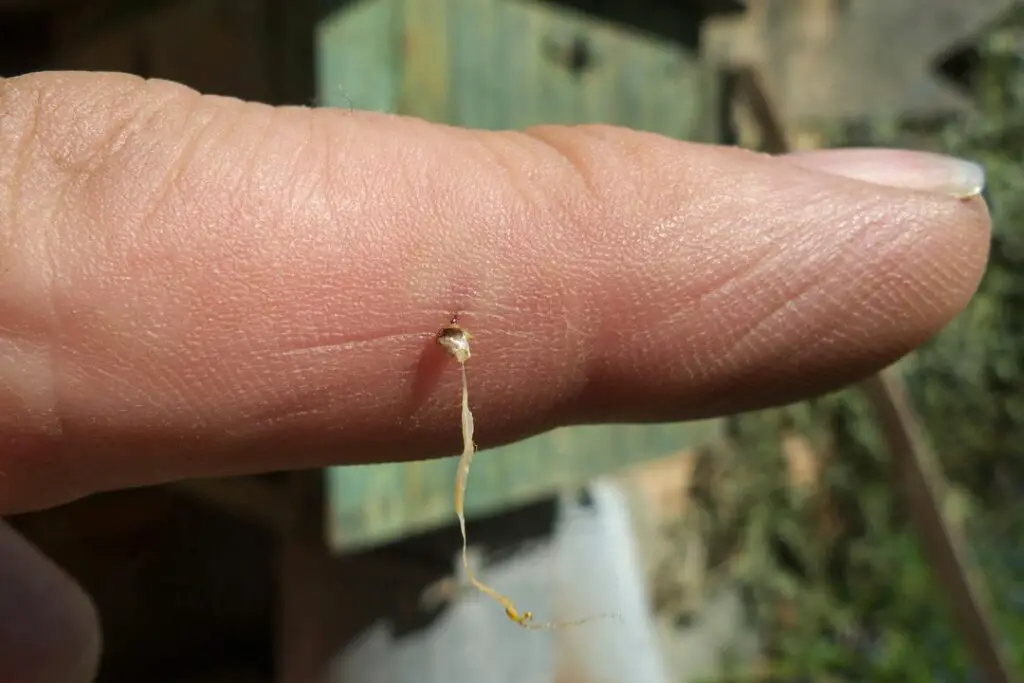
Commonly asked questions about bees Stings and what happens afterwards
We answer some of the internet’s most pressing questions on why bees sting and what happens afterwards.
Can a honeybee queen sting me?
In theory, you could be stung by a queen bee, but they spend nearly all their time inside the hive or nest and do not actively defend the colony.
Do mining bees sting?
Yes, mining bees do have the ability to sting and bite, but they are very passive and rarely show any signs of aggression towards humans.
Why do honey bees sting if it kills them?
Bees operate for the good of the colony as a whole. This means that workers’ bees will happily fly to their death to defend the nest and the young larvae and eggs that are critical to its success.
Do bumblebees die after they sting?
No, bumblebees don’t die after stinging. Their stingers aren’t barbed, so they can sting multiple times without harming themselves.

